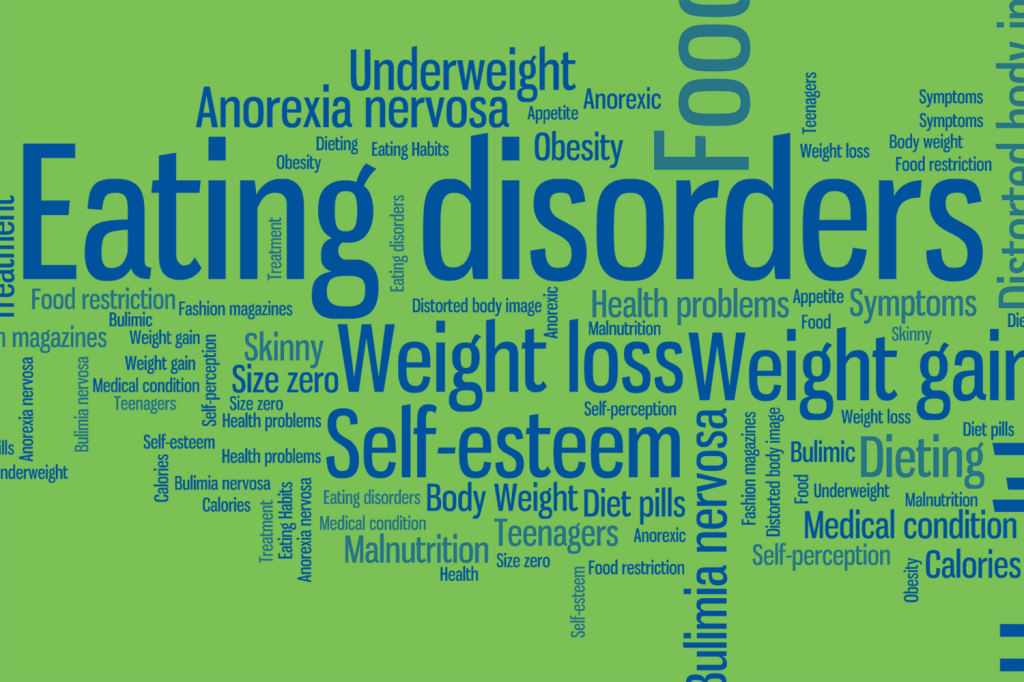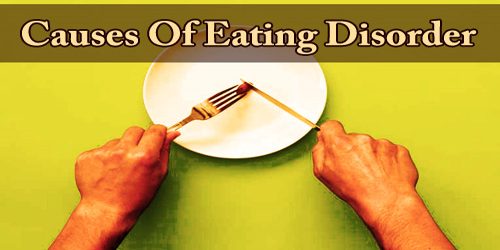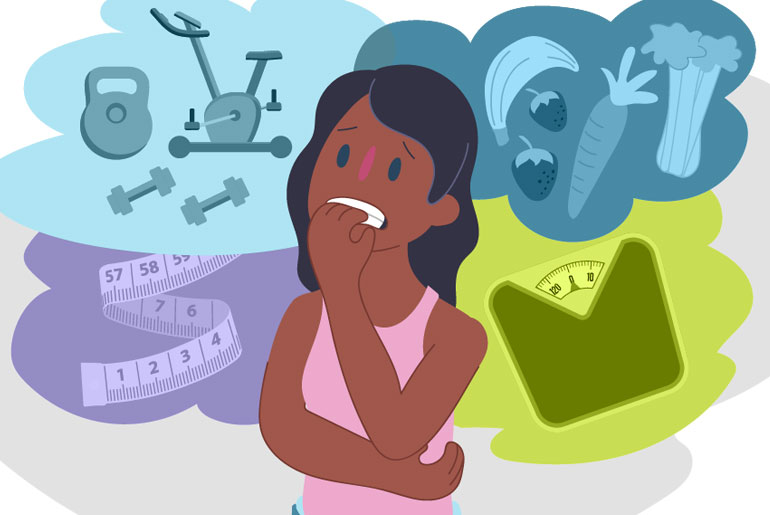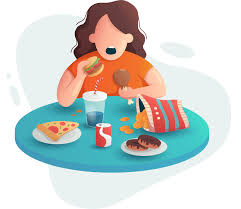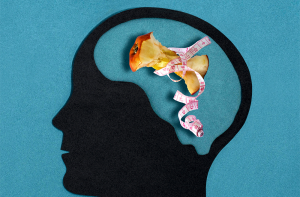If you are struggling with an eating disorder, you are not alone. Millions of people around the world are affected by eating disorders. However, the good news is that there is help available for people with an eating disorder. Furthermore, if you get the right treatment, you will live a healthier life. Furthermore, In this blog post, we will discuss some of the most effective ways to recover from an eating disorder. We will also provide tips for seeking professional help. So if you are ready to get started on your recovery journey, keep reading.
Contents
- 1 What Is Eating Disorder?
- 2 Different Types of Eating Disorders
- 3 Causes of Eating Disorders
- 4 Diagnosis of Eating Disorder
- 5 Negative Impacts of Eating Disorders
- 6 Treatment of Eating Disorders
- 7 Managing Eating Disorders
- 8 Preventing Eating Disorders
- 9 Helping Someone Suffering From Eating Disorders
- 10 Conclusion
- 11 A Word From Therapy Mantra
What Is Eating Disorder?
An eating disorder is a mental illness that causes people to have a distorted view of their body image and food. Furthermore, people with an eating disorder may obsess about their weight and calories and often have extreme dieting habits. They may also engage in dangerous behaviors like purging or binging to try to control their weight. An eating disorder can be very harmful to your physical and emotional health, so it’s important to get help if you think you might have one.
Different Types of Eating Disorders
There are three main types of eating disorders: anorexia, bulimia, and binge eating disorder.
Anorexia Eating Disorder
Anorexia is a condition that causes people to starve themselves, even when they are dangerously thin. People with anorexia often have an unrealistic view of their body image and see themselves as fat, even when they are extremely thin.
Symptoms
The symptoms of anorexia can vary from person to person, such as:
- Having a low body weight
- Obsessing about your weight and calories
- Refusing to eat food
- Exercising excessively
- Vomiting or using laxatives after eating
- Having a distorted view of your body image
Risks Factors
Anorexia can be very harmful to your physical and emotional health. Some of the risks factors associated with anorexia such as:
- Irregular heartbeat
- Low blood pressure
- Dehydration
- Difficulty sleeping
- Mental health problems like depression and anxiety
- Suicidal thoughts or behaviors
- Death
Bulimia Eating Disorder
Bulimia is a condition that causes people to overeat then purge the food by vomiting or using laxatives. People with bulimia often feel out of control around food and may binge eat for hours at a time.
Symptoms
The symptoms of bulimia can also vary from person to person, such as:
- Eating large amounts of food in a short period of time (bingeing)
- Purging by vomiting or using laxatives
- Feeling out-of-control around food
- Obsessing about calories and weight
- Low self-esteem
- Depression
- Anxiety
Risks Factors
Bulimia can also be very harmful to your physical and emotional health. Some of the risks factors associated with bulimia such as:
- Stomach pain, nausea, and vomiting
- Swollen glands in neck or face area
- Tooth decay and gum disease due to vomit acidity levels
- Electrolyte imbalance (too much or too little potassium, sodium, and chloride)
- Cardiac problems
- Mental health problems like depression and anxiety
- Suicidal thoughts or behaviors
- Death
Binge Eating Disorder
Binge eating disorder is the most common type of eating disorder. Furthermore, it causes people to regularly eat large amounts of food in a short period of time. However, people with binge eating disorders often feel ashamed and embarrassed about their eating habits.
Symptoms
The symptoms of binge eating disorder can vary from person to person, such as:
- Eating large amounts of food in a short period of time (bingeing)
- Feeling ashamed and embarrassed about your eating habits
- Having a distorted view of your body image
- Low self-esteem
- Depression
- Anxiety
Risks Factors
Binge eating disorder can also be very harmful to your physical and emotional health. Some of the risks factors associated with binge eating disorders such as:
- Heart disease
- Type II diabetes
- High blood pressure
- Gallbladder disease
- Non-alcoholic fatty liver disease (steatohepatitis)
- Sleep apnea and respiratory problems
- Mood disorders such as depression and anxiety Disorders
Causes of Eating Disorders
There is no one-size-fits-all answer to this question, but there are some things that may contribute to an eating disorder. Such as:
- Genetics: Some people may be more likely to develop an eating disorder because of their genes.
- Media Pressure: The media often portrays unrealistic body images that can lead to dissatisfaction with your own body.
- Peer Pressure: Friends and family members may put pressure on you to be thin or have a certain body type.
- Emotional Problems: People who are struggling with emotional problems like anxiety or depression are also more likely to develop an eating disorder.
- Psychological factors: Some people may use food as a way to deal with emotional problems like stress or anxiety.
- Environmental factors: Certain environmental factors, like being in a diet-focused culture or being teased about your weight, can also contribute to an eating disorder.
Diagnosis of Eating Disorder
- If you are concerned that you may have an eating disorder, it is important to see a doctor or mental health professional.
- Furthermore, they will be able to do an evaluation and determine if you meet the criteria for having an eating disorder.
- Many people with eating disorders don’t realize that they have a problem, so it is important to get help if you think there is something wrong.
Negative Impacts of Eating Disorders
If an eating disorder is left untreated, it can lead to a number of negative consequences, such as:
- Anemia: Anemia is a condition that occurs when you don’t have enough red blood cells to carry oxygen throughout your body.
- Irregular periods: Irregular periods can occur when you lose too much weight or don’t eat enough food.
- Osteoporosis: Osteoporosis is a condition that causes your bones to become weak and brittle.
- Heart problems: Heart problems can occur when you lose too much weight or don’t eat enough food.
- Malnutrition: Malnutrition is a condition that occurs when you don’t get the right amount of nutrients your body needs.
- Death: Eating disorders can be deadly if they are not treated.
If you are struggling with an eating disorder, seek professional help right away. However, there are a number of different therapies available that can help you recover from your eating disorder. You deserve to get the treatment you need to heal and live a healthy life.
Treatment of Eating Disorders
There are a number of therapy treatment options for anorexia, such as:
- Cognitive-behavioral therapy (CBT): CBT is a type of therapy that helps you change the way you think and behave.
- Family-based treatment: Family-based treatment is a type of therapy that involves your family members in your treatment.
- Psychodynamic psychotherapy: Psychodynamic psychotherapy is a type of therapy that focuses on the emotional factors that may contribute to an eating disorder.
- Interpersonal psychotherapy: Interpersonal psychotherapy is a type of therapy that helps you identify and resolve problems in your relationships.
- Motivational enhancement therapy: Motivational enhancement therapy is a type of therapy that helps you increase your motivation to seek help and change your behavior.
Managing Eating Disorders
If you are already struggling with an eating disorder, there are some things you can do to get help, such as:
- Seeking professional treatment: Seeking professional treatment is the best way to get help for an eating disorder.
- Joining a support group: Joining a support group can provide you with emotional support and guidance from people who understand what you are going through.
- Talking to a friend or family member: Talking to a friend or family member about your eating disorder can be helpful in gaining insight and support.
- Reading self-help books: Reading self-help books can give you information and advice on how to recover from an eating disorder.
Preventing Eating Disorders
There are some things you can do to help prevent eating disorders, such as:
- Regular physical activity: Regular physical activity can help promote a healthy body image and reduce the risk of developing an eating disorder.
- Eating a balanced diet: Eating a balanced diet can help you maintain a healthy weight and reduce the risk of developing an eating disorder.
- Avoiding diets: Furthermore, avoiding diets can help you maintain healthy body weight and reduce the risk of developing an eating disorder.
- Getting enough sleep: Getting enough sleep can help your body function properly and may reduce the risk of developing an eating disorder.
- Developing positive body image: Developing a positive body image can help prevent eating disorders from occurring.
Helping Someone Suffering From Eating Disorders
If you are worried about someone you know who is struggling with an eating disorder, there are some things you can do to help, such as:
- Talking to the person: Talking to the person about your concerns may be the best way to start helping them.
- Offering support: Offering support can be helpful in motivating the person to seek treatment.
- Helping with meal planning: Furthermore, helping with meal planning can ensure that the person is getting enough nutrients and calories.
- Encouraging physical activity: Encouraging physical activity can help promote a healthy body image and reduce the risk of developing an eating disorder.
It can be difficult to watch someone you care about struggle with an eating disorder, but by offering support and encouragement, you can help them get the treatment they need to recover.
Conclusion
Eating disorders are serious mental illnesses that can have a devastating impact on physical and emotional health. While there is no one-size-fits-all treatment for eating disorders, there are many effective therapies available. However, if you or someone you love is struggling with an eating disorder, it’s important to seek help from a qualified professional. Moreover, there is hope for recovery, and with the right support, people with eating disorders can regain their health and happiness.
A Word From Therapy Mantra
Your mental health — Your psychological, emotional, and social well-being — has an impact on every aspect of your life. Positive mental health essentially allows you to effectively deal with life’s everyday challenges.
Furthermore, at TherapyMantra, we have a team of therapists who provide affordable online therapy to assist you with issues such as depression, anxiety, stress, workplace Issues, addiction, relationship, OCD, LGBTQ, and PTSD. You can book a free therapy or download our free Android or iOS app.
